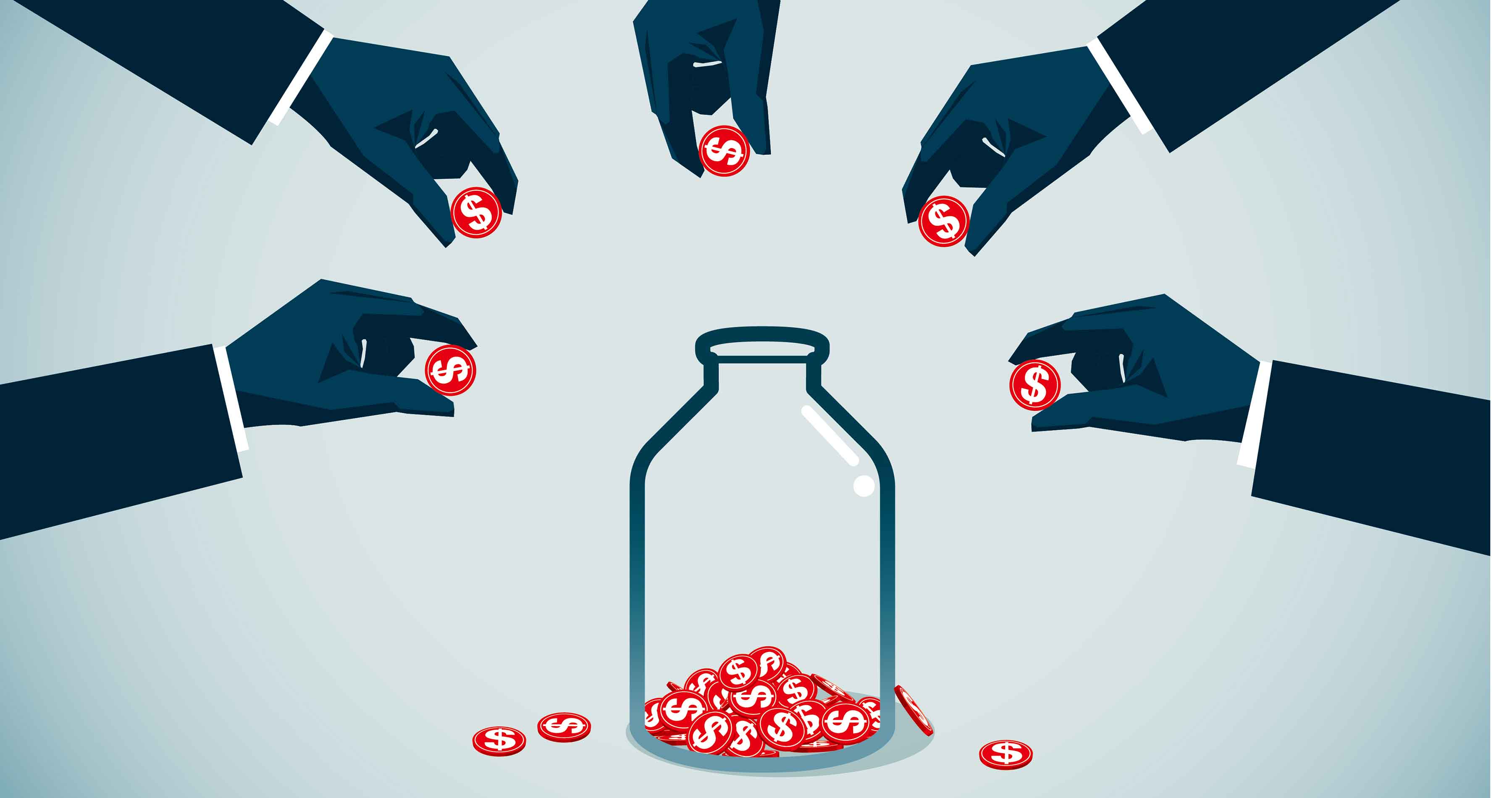Bonds Will Deliver in 2021
Don’t rush to withdraw any 2020 profits from the market. 2021 is looking good.


Profit and prosper with the best of Kiplinger's advice on investing, taxes, retirement, personal finance and much more. Delivered daily. Enter your email in the box and click Sign Me Up.
You are now subscribed
Your newsletter sign-up was successful
Want to add more newsletters?

Delivered daily
Kiplinger Today
Profit and prosper with the best of Kiplinger's advice on investing, taxes, retirement, personal finance and much more delivered daily. Smart money moves start here.

Sent five days a week
Kiplinger A Step Ahead
Get practical help to make better financial decisions in your everyday life, from spending to savings on top deals.

Delivered daily
Kiplinger Closing Bell
Get today's biggest financial and investing headlines delivered to your inbox every day the U.S. stock market is open.

Sent twice a week
Kiplinger Adviser Intel
Financial pros across the country share best practices and fresh tactics to preserve and grow your wealth.

Delivered weekly
Kiplinger Tax Tips
Trim your federal and state tax bills with practical tax-planning and tax-cutting strategies.

Sent twice a week
Kiplinger Retirement Tips
Your twice-a-week guide to planning and enjoying a financially secure and richly rewarding retirement

Sent bimonthly.
Kiplinger Adviser Angle
Insights for advisers, wealth managers and other financial professionals.

Sent twice a week
Kiplinger Investing Weekly
Your twice-a-week roundup of promising stocks, funds, companies and industries you should consider, ones you should avoid, and why.

Sent weekly for six weeks
Kiplinger Invest for Retirement
Your step-by-step six-part series on how to invest for retirement, from devising a successful strategy to exactly which investments to choose.
On Wednesday of election week, the Federal Reserve Board issued a statement, and the chairman gave a press conference. Let me summarize the Fed’s message in four words: More of the same.
That’s good news for income markets in 2021. It portends more positive returns, comparable to the 7% in 2020 on investment-grade corporate bonds or the 3.5% on Ginnie Mae mortgage pools. Any sense that inflation, interest rates and economic growth will escalate enough to erode bond values is mistaken, even if a viable COVID vaccine revs consumer and business confidence. Look at it this way, says PGIM Fixed Income economist Katharine Neiss, “A vaccine is less inflationary than a huge fiscal stimulus.”
A mixed and centrist election outcome, assuming it comes to pass after runoff elections for Georgia’s Senate seats, stands to trim the maximum size and breadth of any such 2021 stimulus package. That moderation will restrain long-term interest rates. And the Fed’s explicit policy of lower-for-even-longer short-term yields and its promise to fight anything threatening to spark even a near-recession will keep cash returns near zero. That hardens the floor beneath the value of stocks and bonds.
From just $107.88 $24.99 for Kiplinger Personal Finance
Become a smarter, better informed investor. Subscribe from just $107.88 $24.99, plus get up to 4 Special Issues

Sign up for Kiplinger’s Free Newsletters
Profit and prosper with the best of expert advice on investing, taxes, retirement, personal finance and more - straight to your e-mail.
Profit and prosper with the best of expert advice - straight to your e-mail.
No shame in looking. The balance of risk and reward that favors higher yields over too much caution has not changed. The question is one of degree. At least investors should start to feel more comfortable about reaching for yield beyond the usual suspects. Says Eaton Vance fund manager Andrew Goodale, “The shaming of people for searching for yield has quieted down.”
As always, there will be some bond market blowups, but beware making sweeping judgments. Do not go wobbly on municipal bonds should Illinois lose its investment-grade credit rating, and do not dis Dividend Aristocrats if ExxonMobil slashes its payout. It is a mistake to sell good investments on news events. If you waited out the worst few weeks this past February and March, you benefited big-time. The markets vindicated the view that high-yield bonds, taxable municipals and preferred stocks were massively oversold, and these holdings maintained their payouts. Even if Illinois were to sink to the same bond rating as Brazil’s, it will not default on its interest payments.
Since 2021 stands to be quieter than 2020, with no election, banks and real estate steadying, and progress on the pandemic, there’s no urgency I can see to withdraw your 2020 profits from the market. A year ago I highlighted the closed-end Nuveen Preferred and Income Term Fund (symbol JPI), lauding its prospects even after a 31% return in 2019. The fund’s share price fell 40% (like so much else) in late February and March, but it regained most of the losses and still distributes 7% annually. After a similar drop in the Flaherty & Crumrine Preferred Income Fund (PFD), a relentless rally delivered a 16% year-to-date increase in share price. It distributes 6% after raising dividends 10% in August. PFD, a closed-end fund, trades at a 20% premium to net asset value, but once that shrinks, it is a buy. (Yields and returns are as of early November.)
I am also a fan of Invesco Taxable Municipal Bond ETF (BAB). Taxable munis yield as much as or more than triple-B corporates—but with triple-A and double-A ratings, arguably sounder revenues, and a huge market of institutions and foreigners who do not need or qualify for a tax exemption. The ETF yields about 3% and has a total return of 6.7% for 2020, on top of 11% in 2019.
Lastly, high-yield bonds retain a handsome yield advantage over Treasuries. Good fund managers, including those at Vanguard High Yield Corporate (VWEHX), are careful to avoid sick sectors and borrowers with cash-flow crises. Goodale calls this “informed risk tolerance.” I call it smart.
Profit and prosper with the best of Kiplinger's advice on investing, taxes, retirement, personal finance and much more. Delivered daily. Enter your email in the box and click Sign Me Up.

Kosnett is the editor of Kiplinger Investing for Income and writes the "Cash in Hand" column for Kiplinger Personal Finance. He is an income-investing expert who covers bonds, real estate investment trusts, oil and gas income deals, dividend stocks and anything else that pays interest and dividends. He joined Kiplinger in 1981 after six years in newspapers, including the Baltimore Sun. He is a 1976 journalism graduate from the Medill School at Northwestern University and completed an executive program at the Carnegie-Mellon University business school in 1978.
-
 Dow Adds 1,206 Points to Top 50,000: Stock Market Today
Dow Adds 1,206 Points to Top 50,000: Stock Market TodayThe S&P 500 and Nasdaq also had strong finishes to a volatile week, with beaten-down tech stocks outperforming.
-
 Ask the Tax Editor: Federal Income Tax Deductions
Ask the Tax Editor: Federal Income Tax DeductionsAsk the Editor In this week's Ask the Editor Q&A, Joy Taylor answers questions on federal income tax deductions
-
 States With No-Fault Car Insurance Laws (and How No-Fault Car Insurance Works)
States With No-Fault Car Insurance Laws (and How No-Fault Car Insurance Works)A breakdown of the confusing rules around no-fault car insurance in every state where it exists.
-
 What Fed Rate Cuts Mean For Fixed-Income Investors
What Fed Rate Cuts Mean For Fixed-Income InvestorsThe Fed's rate-cutting campaign has the fixed-income market set for an encore of Q4 2024.
-
 The Most Tax-Friendly States for Investing in 2025 (Hint: There Are Two)
The Most Tax-Friendly States for Investing in 2025 (Hint: There Are Two)State Taxes Living in one of these places could lower your 2025 investment taxes — especially if you invest in real estate.
-
 The Final Countdown for Retirees with Investment Income
The Final Countdown for Retirees with Investment IncomeRetirement Tax Don’t assume Social Security withholding is enough. Some retirement income may require a quarterly estimated tax payment by the September 15 deadline.
-
 Dividends Are in a Rut
Dividends Are in a RutDividends may be going through a rough patch, but income investors should exercise patience.
-
 Bond Basics: Zero-Coupon Bonds
Bond Basics: Zero-Coupon Bondsinvesting These investments are attractive only to a select few. Find out if they're right for you.
-
 Bond Basics: How to Reduce the Risks
Bond Basics: How to Reduce the Risksinvesting Bonds have risks you won't find in other types of investments. Find out how to spot risky bonds and how to avoid them.
-
 Why Investors Needn't Worry About U.S. Credit Downgrade
Why Investors Needn't Worry About U.S. Credit DowngradeFitch Ratings The United States saw its credit rating downgraded for just the second time in history, but experts aren't worried about the long-term damage to stocks.
-
 What's the Difference Between a Bond's Price and Value?
What's the Difference Between a Bond's Price and Value?bonds Bonds are complex. Learning about how to trade them is as important as why to trade them.